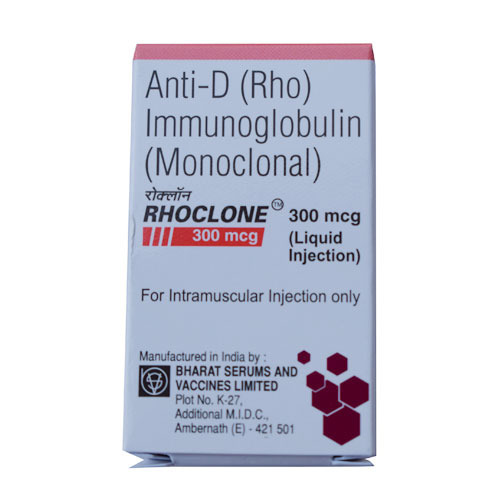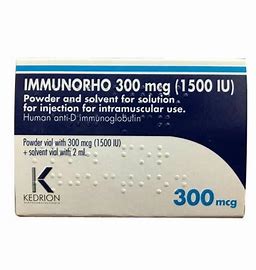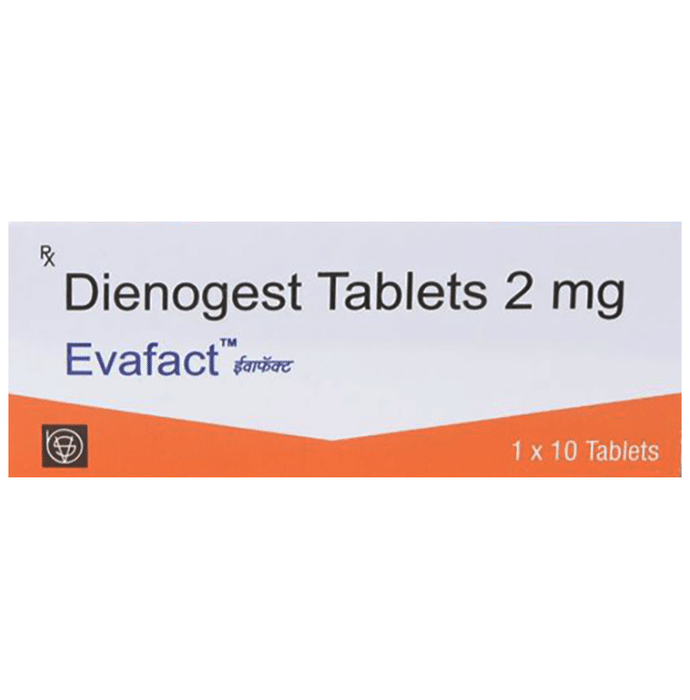Rhoclone 300mcg Injection
ANTI RH D IMMUNOGLOBULIN
Rhoclone 300mcg Injection is administered to prevent Rhrelated complications during pregnancy It is also approved for use in cases of incompatible transfusions in individuals with Rhnegative blood who receive blood components containing Rhpositive red blood cells RBCs Additionally it is approved for treating immune thrombocytopenic purpura a condition characterized by a reduced number of circulating platelets which can result in easy bruising It is important to note that you should not administer this injection to yourself it should be given by your doctor or nurse The injection is typically administered into a muscle commonly in the upper arm As part of routine healthcare you will be offered an antiD injection around 28 weeks of pregnancy and within 72 hours of giving birth if your baby has Rh D positive blood


Why do I need Matergam P?
Matergam P is needed to prevent a disease called Rhesus disease. This can help to avoid a process known as sensitisation in women. This is a condition when a woman with RhD negative blood is exposed to RhD positive blood and develops an immune response to it.

How does anti-D immunoglobulin work?
Anti-D works by destroying any RhD positive blood from the baby present in the mothers circulation before she can make her own antibodies. This means that the mother does not have the antibodies available to cause HDN in any future pregnancies with an RhD positive baby.

Does anti-d injection have side effects?
Common side effects include nausea, headache, pain and redness at the site of injection, rash, body aches, and fevers. Anti-D (rh) immunoglobulin can also cause dizziness. Do not drive or operate heavy machinery until you know how this medication affects you.

How many anti-D injections do I need when pregnant?
Routine antenatal anti-D prophylaxis (RAADP) a 1-dose treatment: where you receive an injection of immunoglobulin at some point during weeks 28 to 30 of your pregnancy. a 2-dose treatment: where you receive 2 injections; one during the 28th week and the other during the 34th week of your pregnancy.

How is Rhoclone administered?
Rhoclone should be administered under the supervision of a trained healthcare professional or a doctor only and should not be self-administered. Rhoclone is given into a muscle, normally in the upper arm. Follow your doctor’s instructions carefully to get maximum benefit from Rhoclone.

What happens if anti-D is not given?
Without anti-D, your body will treat your babys blood as a foreign invader. Your immune system will produce antibodies to destroy blood cells from your baby. Doctors call this sensitisation. Antibodies can cause serious problems if a sensitised RhD-negative woman becomes pregnant again with another RhD-positive baby.












.svg)
